
Jupiterimages/Photos.com/Getty Images
Eggs are nutritious. They can be enjoyed as a main dish, in salads, or as a snack. Eggs are an important ingredient in many recipes. They are convenient, easy to prepare, inexpensive and portable when hard boiled.
Significance
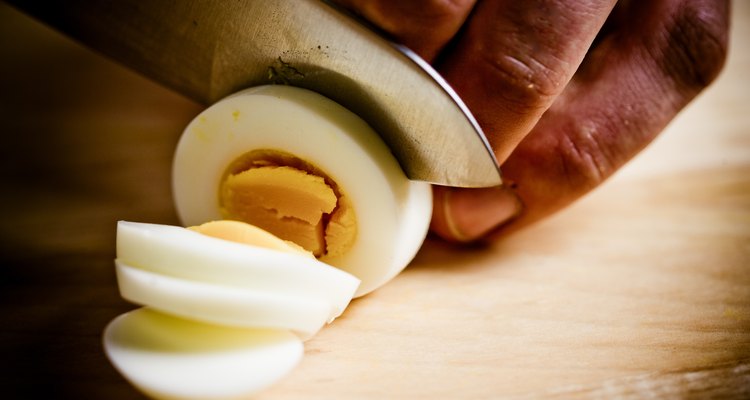
Jupiterimages/Photos.com/Getty Images
One egg contains about 75 calories, 6 to 7 grams of protein, plus many vitamins and minerals. They are low in fat, low in sodium, and versatile.
Considerations
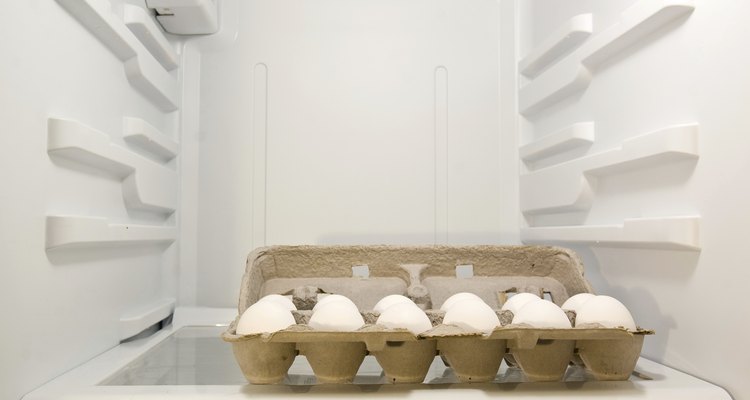
Adam Kazmierski/iStock/Getty Images
Before preparing eggs in any way make sure to use fresh, refrigerated, clean, sound shelled, Grade AA or A eggs. Store uncooked eggs on a shelf in the refrigerator in the carton, not in the door.
Hard Boiled Eggs
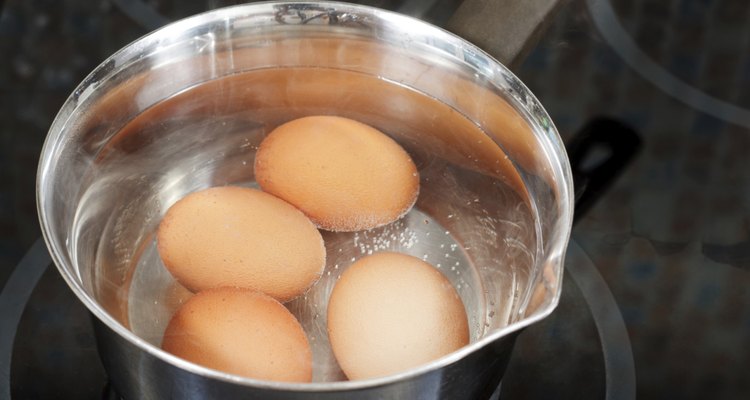
VvoeVale/iStock/Getty Images
Eggs that are a few days old make better hard boiled eggs. Put in a sauce pan and cover with 1 to 2 inches of cold water. A teaspoon of vinegar will help if the egg cracks. Bring to boil, reduce heat, remove from heat, then cover for 12 minutes.
Shelf Life
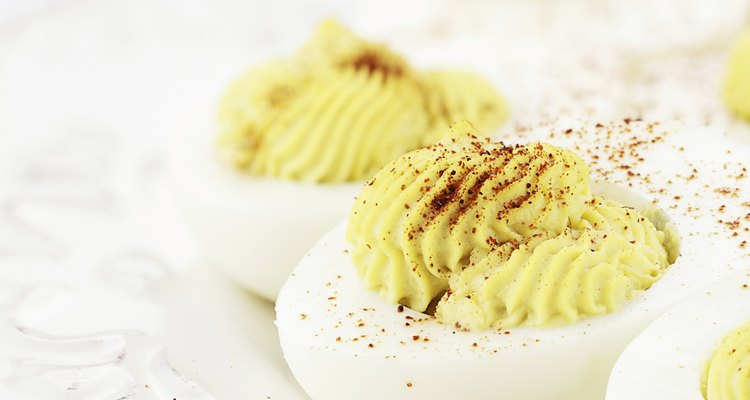
StephanieFrey/iStock/Getty Images
Hard boiled eggs should be eaten within one week. Egg shells are porous, and when boiled, the protective coating of mineral oil used by the processor is washed away. Hard boiled eggs can pick up bacteria, odors, and an off flavor.
Handling
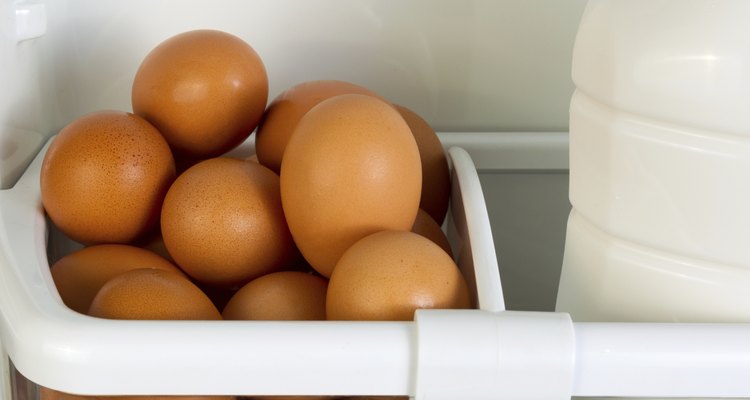
tab1962/iStock/Getty Images
Hard boiled eggs should be cooled and refrigerated within two hours of cooking. A rotten egg is easy to spot and smell by its bad odor and off coloring.
Fact
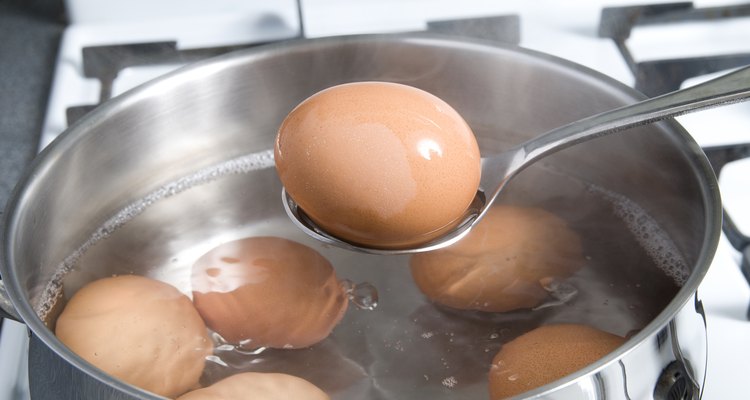
Lynsey Garvie/iStock/Getty Images
Gentle boiling makes a better hard boiled egg. Cooking too long or with too high heat can cause a green ring (unsightly but not unhealthy) around the yolk and make the white rubbery.
Related Articles
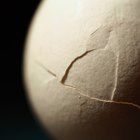
Can You Hard Boil a Broken Egg?
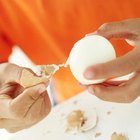
Should I Pierce Eggs Before Boiling?

Can You Eat Hard-Boiled Eggs Even ...
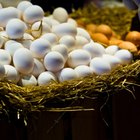
How to Cook a Hard Boiled Egg With a ...

Can You Eat a Broken Egg?

What Happens When an Egg Cracks While ...

How to Preserve a Hard Boiled Egg

How to Cook Eggs Sunny Side Up Without ...

How Can I Tell If an Egg Is Hard-Boiled ...
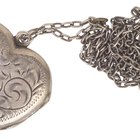
How to Tarnish Jewelry on Purpose
How Long Before a Hard Boiled Egg Goes ...

How Long Will Eggs Last if Covered in ...

How to Freeze Raw Eggs
How to Make an Overeasy Egg
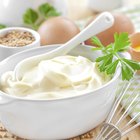
How to Replace Eggs With Mayonnaise

How to Prevent Dark Circles in Hard ...
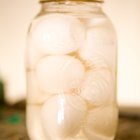
How to Make Brine Pickled Eggs
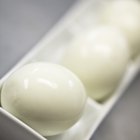
How to Make Salted Egg

What Does It Mean if a Boiled Egg Turns ...

Can You Eat an Egg That's Been Frozen?
References
Resources
Writer Bio
This article was written by the CareerTrend team, copy edited and fact checked through a multi-point auditing system, in efforts to ensure our readers only receive the best information. To submit your questions or ideas, or to simply learn more about CareerTrend, contact us [here](http://careertrend.com/about-us).
Photo Credits
Jupiterimages/Photos.com/Getty Images